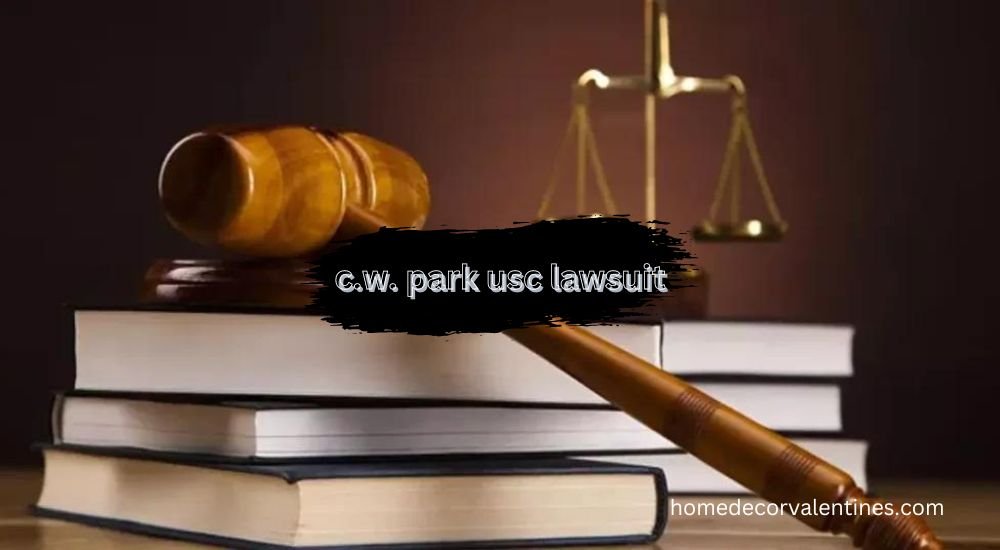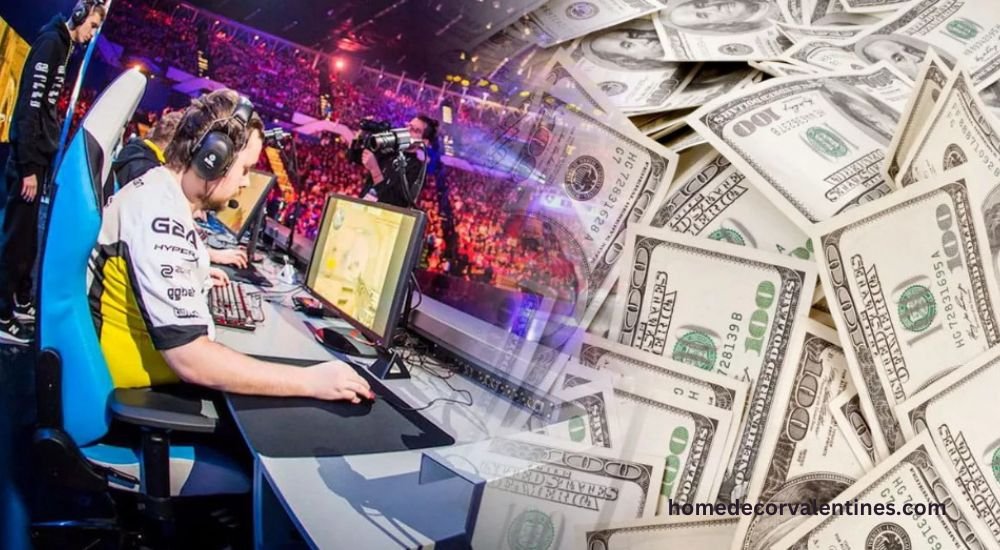C.W. Park USC Lawsuit: A Deep Dive into the Legal Battle
The academic world has been closely watching the lawsuit filed by c.w. park usc lawsuit against the University of Southern California (USC). This legal battle has sparked conversations about academic freedom, employment rights, and the broader implications for universities nationwide. In this article, we’ll explore the details of the C.W. Park USC lawsuit, its significance, and what it could mean for the future of higher education.
Who is c.w. park usc lawsuit?
C.W. park usc lawsuit is a distinguished academic and a prominent figure in the field of marketing. Over the years, he has made significant contributions to marketing research, particularly in brand management and consumer behavior. His work has been widely recognized, and he has held prestigious positions at various academic institutions, including his tenure at USC.
Overview of the University of Southern California (USC)
The University of Southern California is one of the leading private research universities in the United States. Founded in 1880, USC has grown into a global center for arts, technology, and international business. The university is renowned for its academic programs, research contributions, and strong alumni network, making it a major player in the higher education landscape.
Details of the Lawsuit
What Sparked the Lawsuit?
The lawsuit was initiated by c.w. park usc lawsuit over issues related to his employment at USC. Park alleges that the university engaged in actions that violated his rights as a faculty member, including issues related to academic freedom, employment terms, and possibly discriminatory practices. The specifics of these allegations are complex and involve a series of legal and ethical questions about how academic institutions manage their faculty.
Key Allegations Made by c.w. park usc lawsuit
C.W. Park’s lawsuit includes several serious allegations against USC. These range from breach of contract to violations of academic freedom. Park claims that USC’s actions not only affected his professional career but also had a broader impact on the academic environment at the university, potentially influencing how faculty are treated across the institution.
USC’s Response to the Lawsuit
USC has responded to the lawsuit by denying the allegations and asserting that they have acted within their rights as an employer. The university has also emphasized its commitment to maintaining a positive and productive academic environment. As the case progresses, USC’s defense strategy will likely involve a detailed examination of the policies and procedures that governed Park’s employment.
The Legal Process
The lawsuit has been moving through the legal system, with both parties presenting their arguments in court. The initial filings have set the stage for what could be a lengthy legal battle, with both sides preparing to present evidence and testimony to support their claims. As the case unfolds, there have been several significant developments. These include rulings on preliminary motions, the gathering of evidence, and the scheduling of hearings. Each step in the process brings new insights into the case and its potential impact on the academic community.
Impact on USC’s Academic Community
The lawsuit has sparked a range of reactions from faculty and students at USC. Some faculty members have expressed concerns about how the case might affect their own positions, while others see it as a crucial test of academic freedom at the university. Students, too, are watching the case closely, particularly those involved in disciplines related to Park’s work. The outcome of this lawsuit could have far-reaching implications for USC’s policies, particularly those related to faculty employment and academic freedom. Depending on the court’s ruling, the university may need to revise its procedures and policies to ensure compliance with legal standards and to address the concerns raised by Park and others.
Analysis of the Allegations
The lawsuit touches on several key legal issues, including contract law, employment law, and the principles of academic freedom. Each of these areas will be scrutinized in court, with legal experts weighing in on the strengths and weaknesses of both sides’ arguments. At its core, the lawsuit raises important questions about the balance between a university’s right to manage its faculty and the protections afforded to academic staff under the law. Academic freedom is a cornerstone of higher education, and this case could set a precedent for how it is interpreted and protected in the future.
Public and Media Reaction
The media has been closely following the c.w. park usc lawsuit, with coverage appearing in both academic and mainstream outlets. The case has been analyzed from multiple angles, with commentators discussing its potential impact on the academic world and its broader societal implications. The lawsuit has also generated significant discussion on social media, with opinions divided on the merits of the case. Some support Park’s stand for academic freedom, while others believe that USC is within its rights to manage its faculty as it sees fit. This public discourse reflects the complex and often contentious nature of employment disputes in academia.
Comparisons to Similar Cases
The C.W. Park lawsuit is not the first of its kind. There have been several high-profile cases involving academics and their institutions, many of which have raised similar issues about employment rights and academic freedom. By examining these cases, we can gain a better understanding of the potential outcomes and implications of Park’s lawsuit. Previous academic lawsuits have taught us that these cases are rarely straightforward. They often involve intricate legal arguments and can have lasting effects on the institutions involved. By comparing the c.w. park usc lawsuit case to others, we can identify patterns and potential strategies that may influence the outcome.
The Broader Implications
The outcome of the c.w. park usc lawsuit could have a ripple effect across the higher education landscape. If Park prevails, other universities may face increased scrutiny over their employment practices, particularly in how they handle disputes with faculty. This could lead to widespread changes in university governance and policies. Depending on the ruling, the case could prompt universities to re-evaluate their employment practices, particularly in areas like contract negotiations, tenure, and academic freedom. These changes could help prevent similar disputes in the future and ensure that faculty rights are better protected.
USC’s Defense Strategy
USC’s defense strategy will likely focus on the contractual and legal aspects of Park’s employment. The university may argue that they acted within their rights as an employer and that Park’s claims do not warrant legal action. This defense will be critical in shaping the court’s interpretation of the case. Legal experts have offered a range of opinions on the case, with some supporting USC’s position and others siding with Park. These opinions provide valuable insights into the strengths and weaknesses of both sides’ arguments and what we can expect as the case progresses.
C.W. park usc lawsuit Supporters
C.W. Park has garnered support from various academic organizations and individuals who see his case as a stand for academic freedom. These supporters argue that the lawsuit is not just about one individual but about protecting the rights of academics everywhere. Academic associations have played a key role in the lawsuit, offering statements of support and providing resources for Park’s legal battle. These associations view the case as a critical moment for the protection of academic freedom and the rights of faculty members.
Possible Outcomes of the Lawsuit
The lawsuit could be resolved in several ways, including a court ruling, a settlement, or even an out-of-court agreement. Each of these outcomes would have different implications for both Park and USC, as well as for the broader academic community. If c.w. park usc lawsuit wins the lawsuit, it could lead to significant changes in how universities manage their faculty and protect academic freedom. Conversely, if he loses, the case could reinforce the authority of universities to govern their faculty as they see fit, potentially limiting the protections available to academic staff.
Long-Term Impact on Academic Institutions
Regardless of the outcome, the c.w. park usc lawsuit is likely to influence university governance for years to come. Universities may need to re-examine their policies and practices to ensure they are aligned with legal standards and that they protect the rights of their faculty. The case could also play a role in shaping future academic policies, particularly in areas like tenure, academic freedom, and employment rights. Universities may adopt new guidelines and practices to prevent similar disputes and to ensure that their faculty feel supported and protected.
Conclusion
The C.W. Park USC lawsuit is a significant legal battle with far-reaching implications for the academic world. As the case progresses, it will continue to be closely watched by academics, legal experts, and the public alike. Whether Park wins or loses, the outcome of this lawsuit will likely influence how universities operate and how faculty rights are protected in the future.
If you gained new insights from this article, explore our blog, Gimkit, for more enlightening content.














Post Comment